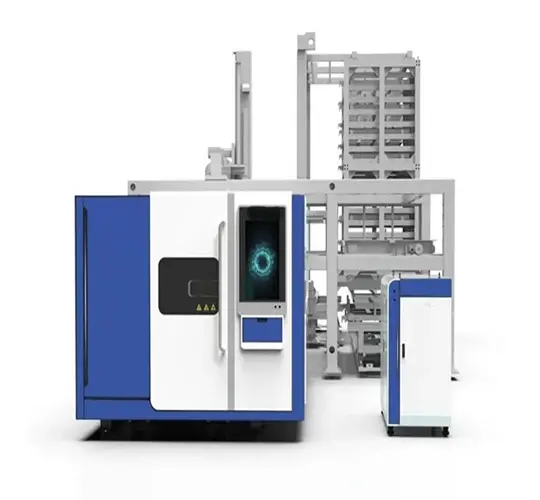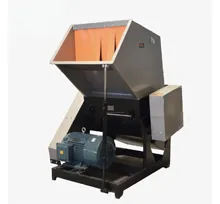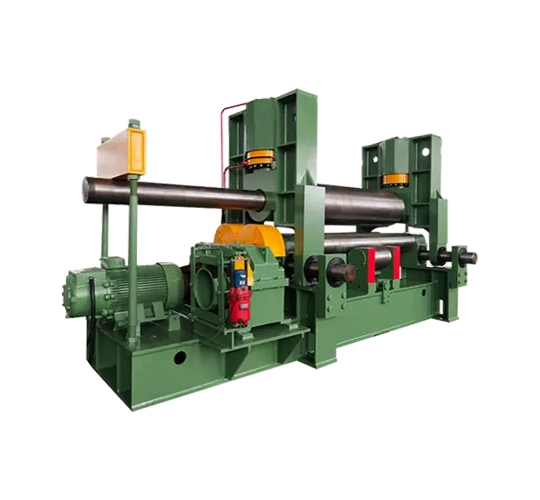Hydraulic ironworker machines are indispensable in metalworking, offering unmatched versatility for tasks like punching, shearing, bending, and notching. However, their power and speed come with significant risks if not handled correctly. Whether you're a seasoned operator or new to the workshop, prioritizing safety is non-negotiable. This comprehensive guide provides actionable safety tips to ensure secure operation of hydraulic ironworkers while emphasizing the value of partnering with trusted equipment suppliers to enhance workplace safety and efficiency.
What Are Hydraulic Ironworker Machines?
Hydraulic ironworkers are robust machines that use hydraulic pressure to manipulate metal with precision. Capable of cutting, punching, and forming, these tools are equipped with multiple workstations, allowing operators to perform diverse tasks on a single unit. This makes them ideal for high-output metalworking shops aiming to streamline operations. Their rapid movement and high force, while boosting productivity, require strict adherence to safety protocols to prevent accidents and equipment damage. The powerful nature of hydraulic ironworkers means that even minor oversights can lead to serious injuries or costly repairs. Respecting the machine's capabilities and limitations is fundamental to maintaining a safe and productive workspace. By understanding how these machines function and committing to safe practices, operators can harness their potential while minimizing risks.
Key Safety Practices for Hydraulic Ironworker Operation
Prioritize Comprehensive Training
Before operating a hydraulic ironworker, thorough training is essential. Operators must familiarize themselves with the machine's controls, functions, and emergency procedures. Reputable workshop equipment suppliers often include training programs with their machines, providing critical knowledge to ensure safe and effective use. Skipping this step can lead to dangerous mistakes, so investing time in proper training is a must.
Conduct Pre-Operation Inspections
Always inspect the machine before use to identify potential issues. Check for hydraulic fluid leaks, loose bolts, damaged hoses, faulty safety guards, or unresponsive controls. Addressing these problems immediately prevents hazardous operation. Never attempt to work through known issues, as this can escalate risks to both the operator and the equipment.
Wear Appropriate Safety Gear
Personal protective equipment (PPE) is a critical defense against workplace hazards. Operators should always wear safety glasses or a face shield, heavy-duty gloves, steel-toed boots, hearing protection, and close-fitting clothing. Loose sleeves or jewelry can get caught in moving parts, so avoid them entirely. This gear significantly reduces the risk of injury from metal fragments or unexpected machine movements.
Secure the Workpiece Properly
A loose workpiece can become a dangerous projectile during operation. Ensure the metal is firmly clamped before starting the machine. High-quality ironworkers from trusted suppliers often feature advanced clamping systems that enhance stability, reducing the likelihood of accidents. Proper securing is a simple yet vital step for safe operation.
Maintain Safe Distance from Moving Parts
Never place hands near blades, punches, or other moving components, even when the machine is powered off, as hydraulic parts can shift unexpectedly. Use tools to adjust metal pieces if repositioning is needed. Keeping a safe distance at all times is a fundamental rule to prevent severe injuries.
Respect Machine Capacity Limits
Every hydraulic ironworker has specific capacity limits for the thickness and hardness of metal it can process. Exceeding these limits can damage the machine or cause accidents. Always consult the manufacturer's guidelines, typically provided by reliable suppliers, to ensure operations stay within safe parameters. Overloading the machine is a preventable error with serious consequences.
Commit to Regular Maintenance
A well-maintained machine is safer and more efficient. Regularly sharpen or replace blades, swap out worn punches and dies, and ensure hydraulic oil is clean and at the correct level. Routine maintenance prevents performance issues that could compromise safety. A small investment in upkeep saves time and avoids major problems down the line.
Know Your Emergency Stop
Familiarize yourself with the emergency stop button's location and function. It should be easily accessible, and operators to practice its use to ensure quick action in a crisis. Being prepared to stop the machine instantly can make all the difference in preventing accidents. Proactive knowledge of this feature is a key safety measure.
Choosing the Right Workshop Equipment Supplier
Why Supplier Quality Matters
Selecting a reliable workshop equipment supplier is as crucial as following safety protocols. Trusted suppliers provide machines that meet rigorous safety standards, reducing the risk of operational hazards. They also offer professional installation, comprehensive training, and ongoing support, ensuring operators are well-prepared to use the equipment safely.
Benefits of Trusted Suppliers
Partnering with a reputable supplier, such as those offering Rockwood Workshop Machines, provides access to high-quality equipment backed by expert guidance. These suppliers ensure quick access to spare parts, maintenance services, and detailed manuals, enhancing machine reliability and longevity. This support gives operators peace of mind, knowing their equipment is safe and dependable.
Enhancing Workplace Productivity
A trusted supplier not only prioritizes safety but also helps optimize workshop efficiency. By providing machines designed for durability and performance, they enable smoother operations and fewer disruptions. For workshops in regions like the UAE, consulting established suppliers ensures access to tools that meet local needs while maintaining high safety standards.
Safety First for Optimal Performance
Hydraulic ironworker machines are powerful allies in metalworking, but their safe operation demands diligence and expertise. By prioritizing thorough training, regular inspections, proper PPE, and adherence to machine limits, operators can create a secure and productive environment. Partnering with reliable workshop equipment suppliers further enhances safety by providing high-quality machines, training, and support. For metalworking professionals, especially in regions like the UAE, choosing trusted suppliers and committing to these safety practices ensures workshops remain efficient, safe, and ready for any challenge. Stay proactive, stay safe, and keep your ironworker running at its best.
 English
English 日本語
日本語 한국어
한국어 français
français Deutsch
Deutsch Español
Español русский
русский Türkçe
Türkçe português
português العربية
العربية Polska
Polska हिंदी
हिंदी Indonesia
Indonesia



